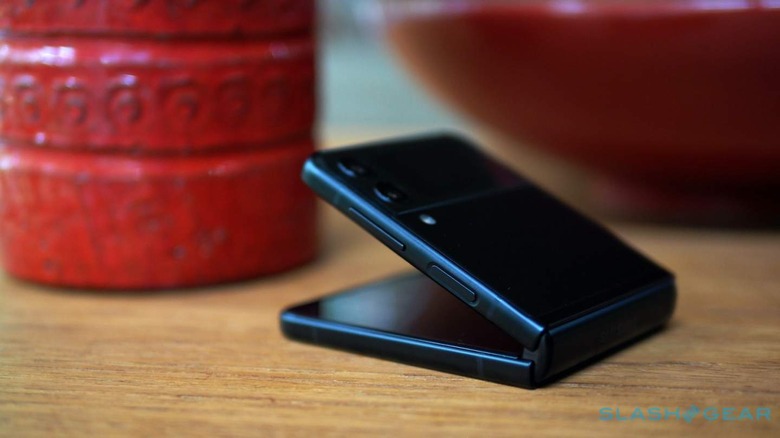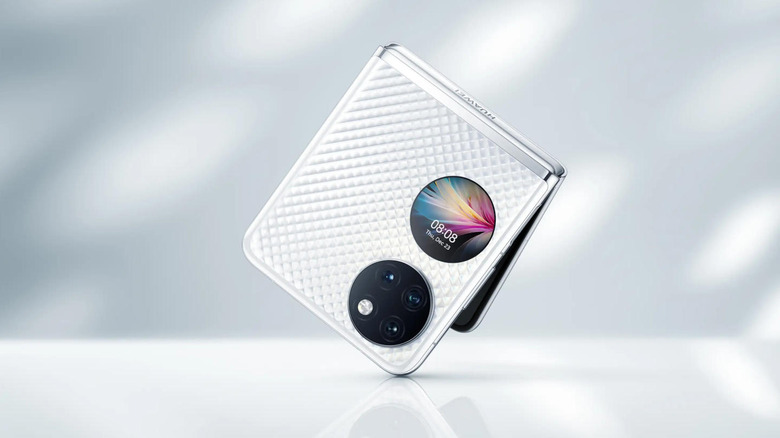Huawei P50 Pocket Vs Galaxy Z Flip 3: Clamshell Showdown
Just when we thought we'd have to wait for 2022 to see the next batch of foldables, OPPO and Huawei proved us wrong. While the OPPO Find N took after and competed with the Galaxy Z Fold 3, the Huawei P50 Pocket is taking aim at Samsung's foldable clamshell instead. It's almost too easy to consider it a Galaxy Z Flip 3 wannabe, but there are definitely a few key things that give it a leg up against Samsung's best-selling foldable.
Specs
When it comes to hardware, there are definitely many places where the two are nearly similar. The Huawei P50 Pocket has a larger 6.9-inch internal foldable screen, but its 2790x1188 resolution means it has a slightly lower pixel density. It has a larger 4,000 mAh battery that even embraces faster 40W charging.
There are, of course, places where the two differ, and in most cases, those are the most important. The memory options, for example, sound better than the Galaxy Z Flip 3's, especially the 12GB RAM and 512GB storage. That said, the Huawei P50 Pocket's Snapdragon 888 doesn't have 5G support as it is Qualcomm's concession to allow Huawei to use the chip despite the US ban.

Design
The most immediately noticeable difference between the two foldable clamshells, however, is in the design. For one, the cameras and cover display on the back of the Huawei P50 Pocket are designed very differently, but more on that later. The biggest differences are in the size and the hinge, setting the foldable phone apart from Samsung's version.
The Huawei P50 Pocket is significantly larger than the Galaxy Z Flip 3. In fact, it is actually larger than Huawei's own P50 Pro flagship when unfolded. And just like its Mate X2 foldable phone, Huawei is boasting its patented hinge that makes it possible to fold the phone shut without any gaps in the middle.

Cameras
The camera is another area where Huawei takes things to the next level, and not just in its appearance. Following the Huawei P50's design, there are three cameras crammed inside a single circular bump. Not only is that one more than what the Galaxy Z Flip 3 has, but they all also have better hardware as well.
The main camera has a larger 40MP sensor with PDAF and Laser AF, though it misses out on OIS. There's a 13MP ultrawide camera as well, similar to what's on the Huawei P50. Unsurprisingly, there is no periscope-style telephoto camera, and the 32MP sensor is strangely labeled as an "Ultra Spectrum Camera" to help accumulate more light and color data.
Cover Screen
Another key aspect where the Huawei P50 Pocket and the Galaxy Z Flip 3 differ greatly is the external screen. Huawei's version is not only smaller at 1.04 inches, but it also comes in a circular shape. On the one hand, that means it's not ideal for reading text notifications and messages. On the other hand, it also presents a more familiar screen similar to watch faces.
Despite the more cramped space, however, the P50 Pocket's cover screen offers more functionality than the Galaxy Z Flip 3's. There are more widgets or mini-apps available for it, including navigation. This is hopefully something Samsung will address with the Galaxy Z Flip 4, especially now that its rival has stepped up its game.
Availability
All things considered, the Huawei P50 Pocket definitely sounds like a winner compared to the Galaxy Z Flip 3. The lack of 5G might be a deal-breaker for some, but at least you won't be losing out on performance. It doesn't run Google's Android either, but HarmonyOS is being pushed to markets outside of China to make up for it.
Unfortunately, the Huawei P50 Pocket is not something that people outside of China might be able to get their hands on, especially those in the US. There is no word yet on a global release, but the foldable clamshell has already started sales in the Chinese market. Another hurdle is the $1,400 starting price tag, which puts it way above the Galaxy Z Flip 3. See our big Samsung Galaxy Z Flip 3 Review to learn a whole lot more about this phone's abilities in the real world.
